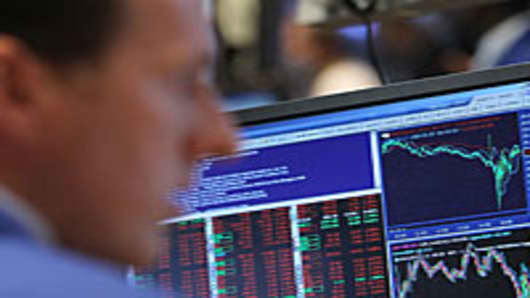Stocks have fallen more than 4 percent in November, even in the face of gradually but consistently improving economic data in jobs, housing and manufacturing.
Bob Janjua, Nomura Securities’ co-head of cross-allocation strategy, said the reason the October rally didn’t carry over is because investors are convinced the eurozone debt crisis is spreading, and that the improved economic signs merely reflect a short-term bump from Japan’s recovery from the earthquake and tsunami that struck in March.
While acknowledging the possibility of a rally into the end of the year, he said a stock market bounce would cause him only to consider “reloading my short risk positions.”
In this climate, Janjua advised, he will “tighten my stops” amid the market unpredictability.
“This bounce has now peaked, in our view, and moderation has resumed or is about to,” Janjua said in a note.
Another noted bear, David Rosenberg, the senior economist and strategist at Gluskin Sheff in Toronto, noted the Thursday slide in stocks, commodities, oil and gold, as well as a rise in Treasurys, had “a certain eerie 2008 feel to it.”
And Rosenberg adds a fifth reason why investors may want to take cover: the congressional supercommittee negotiations over debt reduction. Should no agreement be reached on the bipartisan panel, he notes, that will trigger at least $1.2 trillion of automatic spending cuts.
“For a market that is trading more on headlines and technicals than on fundamentals,” Rosenberg said in his morning note, “these events have to be monitored.”
Questions? Comments? Email us at NetNet@cnbc.com
Follow Jeff @ twitter.com/JeffCoxCNBCcom
Follow NetNet on Twitter @ twitter.com/CNBCnetnet
Facebook us @ www.facebook.com/NetNetCNBC





